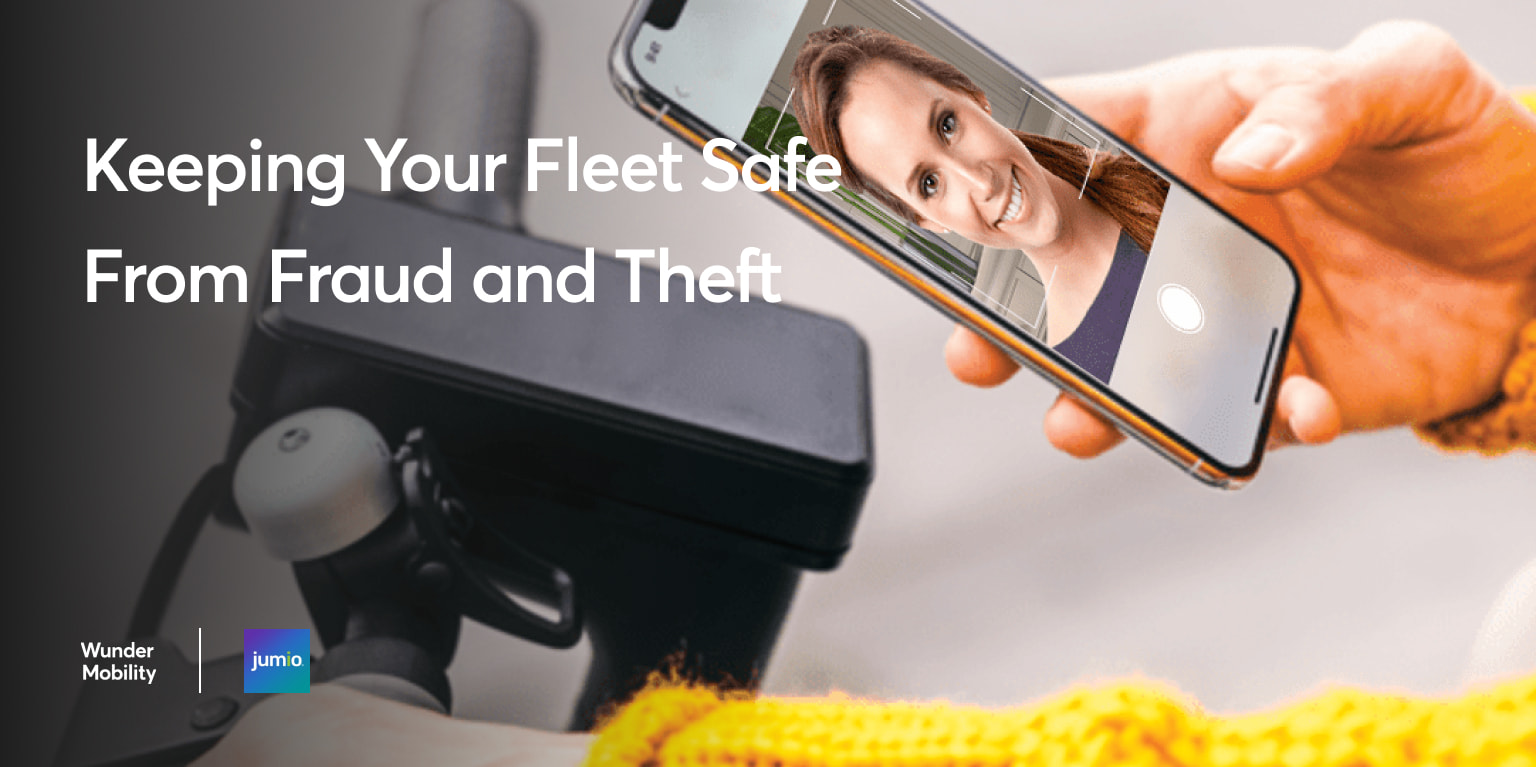Old identity verification methods like two-factor authentication no longer cut it. We’re showcasing a cutting-edge, AI-based identity verification technology that can help protect your vehicles and fleet business from fraud.
It’s no secret that free-floating and even some station-based shared vehicles are at an increased risk of damage, theft and fraud. Images of micromobility scooters stranded on traffic islands or at the bottom of a canal saturate the internet and underscore this point. Not to mention scooters could simply go missing when a fraudster or thief accesses an account with a spoof profile.
There have been efforts to combat mobility vandalism with increased security measures. Most mobility companies require two-factor authentication and license verification to help prevent user fraud. Though often lauded as one of the best measures against fraud, when it comes to mobility, there are newer technologies on the market that can better protect your fleet from theft and subsequent damage.
We spoke to Simon Kingston, EMEA channel director at Jumio, an AI-powered end-to-end digital identity verification and eKYC solutions provider and a Wunder Marketplace partner, to learn more about their modern identity verification solution and how it can protect your fleet from fraud and theft.
Out with the old: Knowledge-based questions and two-factor authentication
First, let’s learn what the more traditional methods of identity verification are. What most people have already come across if they have any type of online account is knowledge-based authentication (KBA), which identifies and verifies a user by asking them security questions for login and other online processes.
KBA is a commonly used method. Unfortunately, according to Kingston, “high-profile data breaches regularly make headlines, and KBA data is regularly exposed and openly sold on the dark web. Information used to craft KBA questions can also often be found online. A quick social media search can reveal the name of your pet or the name of your oldest nephew.”
Then there’s two-factor authentication (2FA), which provides a bit more security, requiring two methods of identity verification in order to login. The most common version of 2FA is the combination of a username and password with a unique verification code that is sent via email or text message.
Though SMS-based authentication can be effective, it’s still vulnerable to key logging, SMS spoofing, as well as man-in-the-middle and man-in-the-browser attacks.
“Regulators are now increasingly calling for stronger, more robust methods of authentication, and The National Institute of Standards and Technology (NIST) no longer endorses security questions nor SMS-based 2FA,” says Kingston.
In with the new: Biometric authentication
If you want to follow expert security recommendations and protect your fleet from fraud, theft and damage, then you might want to strongly consider one of the newer identity verification tools on the market.
Jumio Identity Verification uses artificial intelligence, machine learning and biometrics to automate the verification process, thereby ensuring that the person creating an account in your app is physically present. In the account creation process, Jumio captures an image of the driver’s license or other government-issue ID and a selfie. A biometric template is created and instantly analyzed via artificial intelligence to confirm that the user is a living person and not a spoof.
With Jumio, each login requires a fresh selfie that will be compared to the biometric template associated with the user account. Like the face ID login of many smartphones, this system is fast, reliable and provides peace of mind that the person is who they claim to be.
Identity verification plays a crucial part in keeping your vehicles and fleet safe and secure from fraud attempts, theft and any damage that might occur. It’s wise to invest in a solution that actually works to protect customer accounts.
A seamless user experience
Biometric authentication is not only a smart and convenient choice for fleet operators, it also is a beneficial system for users of mobility apps. “When opening an account, customers want a fast, secure onboarding process and expect the online experience to be simple, intuitive and mobile-optimized,” says Kingston. “With Jumio, your face is your password, and online identity verification is as easy as a selfie.”
Biometric authentication is safe, effortless and reliable for everyone involved in the process.
What’s next in security for mobility
Shared mobility – like the rest of the sharing economy – thrives on the assumption that people want to share vehicles. It also relies on mutual trust and respect. State-of-the-art services like Jumio underscore the trust in sharing systems like Mobility-as-a-Service and will further strengthen this in the future.
Keep your fleet secure: Learn more about Jumio on the Wunder Marketplace.
